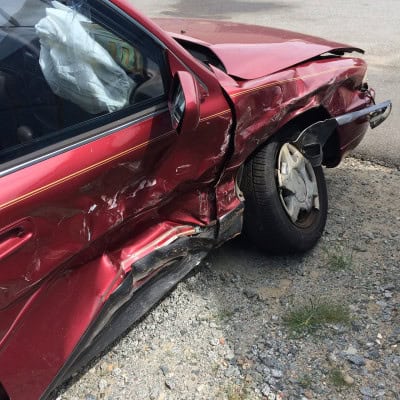Alt Title: Tips for Covering Your Medical Bills After a Car Accident
Medical bills after a car accident can quickly add up, leaving you stressed about how to cover the costs. And if you don’t have a plan, you can easily end up with mountains of debt and a whole lot of anxiety about how to handle it all.
Here’s how you can navigate your options, alleviate the financial burden, and take control of your medical expenses after a car accident.
- Start With Your Auto Insurance
Your first line of defense when it comes to covering medical bills is your auto insurance policy. Depending on the type of coverage you have, you might be able to offset a significant portion of your medical expenses.
- Personal Injury Protection (PIP). If your policy includes personal injury protection (PIP), you’re in luck. PIP is designed to cover medical bills, lost wages, and even some additional expenses like childcare, regardless of who was at fault in the accident. It’s especially common in no-fault states.
- Medical Payments (MedPay). MedPay is another type of coverage that works similarly to PIP but focuses specifically on medical expenses. It’s available in most states and covers things like ambulance rides, emergency room visits, and follow-up appointments.
Make sure to contact your insurance company as soon as possible after the accident to initiate your claim. The sooner you provide them with the necessary documentation, the faster they can process your benefits. In fact, if you wait to contact them, it could actually hurt your ability to file a claim (as most policies have specific language on how long you have to contact them).
- Use Your Health Insurance as a Backup
If your auto insurance doesn’t fully cover your medical bills – or if you don’t have PIP or MedPay – your health insurance can step in to fill the gaps.
Health insurance is particularly helpful for covering long-term treatments, surgeries, or therapy sessions. However, keep in mind that you’ll still be responsible for copays, deductibles, and any out-of-network charges.
Make sure to inform your healthcare provider that your injuries are related to a car accident. They may work directly with your auto insurance company to coordinate payment, which can streamline the process and reduce your out-of-pocket costs.
- Negotiate With Healthcare Providers
If you’re still struggling to cover your bills after exhausting your insurance options, don’t be afraid to negotiate with your healthcare providers. Many hospitals and clinics are willing to work with patients to create manageable payment plans or even reduce the total cost of care.
- Payment Plans. Ask your provider if they offer payment plans that allow you to pay off your bills in smaller installments over time. This can ease the financial burden and help you avoid going into debt.
- Discounts for Prompt Payment. Some providers offer discounts if you’re able to pay a portion of your bill upfront. Even a small reduction can make a big difference when dealing with large medical expenses.
- Financial Assistance Programs. Many hospitals have financial assistance programs for patients who are struggling to pay their bills. These programs may reduce or eliminate your charges based on your income level and financial situation.
Being proactive and communicating openly with your healthcare providers can go a long way in making your bills more manageable.
- Pursue Compensation From the At-Fault Party
If the car accident wasn’t your fault, you may be able to seek compensation from the at-fault driver’s insurance company. This can cover not only your medical expenses but also other damages like lost wages, pain and suffering, and property damage.
Contact the other driver’s insurance company to initiate a claim. Be prepared to provide documentation of your injuries, medical bills, and any other expenses related to the accident.
If negotiations with the insurance company stall or they deny your claim, it might be time to hire a personal injury attorney. An experienced lawyer can advocate for your rights and help you secure the compensation you deserve. Most personal injury attorneys work on a contingency basis, meaning they only get paid if you win your case.
- Tap Into Other Resources
When your insurance and negotiation efforts still leave you short, there are additional resources you can turn to for support.
- Medical Loans. Some financial institutions offer loans specifically for medical expenses. While this isn’t an ideal solution, it can be a temporary fix if you need to cover bills quickly.
- Crowdfunding. Platforms like GoFundMe allow you to raise money from friends, family, and even strangers who are willing to support you during a tough time. Sharing your story can generate empathy and financial help.
- Charitable Organizations. Nonprofits and community organizations often provide assistance to individuals dealing with medical debt. Research local or national programs that may offer grants or financial aid.
- Stay Organized and Proactive
Keeping track of your bills, insurance claims, and payment plans is essential to avoid unnecessary stress or missed deadlines. Create a system to organize all your paperwork, including medical invoices and receipts, any insurance correspondence, and copies of your accident report.
Staying proactive also means following up with insurance companies and providers to ensure everything is processed correctly. When you’re on top of the details, you’ll have a better handle on your situation and avoid surprises.
Adding it All Up
Paying for medical bills after a car accident can be difficult – especially when the bills amount to thousands of dollars that you don’t have in your bank account. But as you can see from this article, there are plenty of options for tackling this challenge. Create a plan, use the resources available to you, and don’t lose hope.












